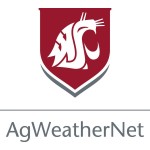By Linda Weiford, WSU News
 PULLMAN, Wash. – The severe heatwave descending upon the Pacific Northwest this weekend is highly unusual because it’s occurring in June and also because it is the second heatwave to strike before the month is over, according to meteorologist Nic Loyd of Washington State University’s AgWeatherNet.
PULLMAN, Wash. – The severe heatwave descending upon the Pacific Northwest this weekend is highly unusual because it’s occurring in June and also because it is the second heatwave to strike before the month is over, according to meteorologist Nic Loyd of Washington State University’s AgWeatherNet.
“Two record-breaking heatwaves in a month is uncommon, but for both of them to happen during June? I’d say that’s exceptional,” he said, adding that prolonged periods of brow-wiping weather typically don’t appear in the region until mid-July or August.
But not this year. The heatwave that kicked in three weeks ago already broke average high-temperature records for the month of June. Now, with several days left of the month and another, more intense span of hot weather predicted, “the question isn’t whether a record will be set,” said Loyd. “The question is, how much will the record be shattered by?”
A dome of high pressure that has been scorching the Southwest is surging toward the Northwest, he explained. Once parked over the region, the thermometer in Lewiston, Idaho, is predicted to soar to 113 degrees and to 110 in the cities of Yakima, Wenatchee and Walla Walla, Washington – temperatures similar to California’s searing Death Valley desert, which averages 115 this time of year. In Spokane and Pullman, the mercury is expected to top off at 105 on Sunday.
“June’s not yet over but I think it’s safe to say that it will be a historic month in terms of consistently hot temperatures,” said Loyd.
The high-pressure ridge is estimated to linger over the Northwest at least through Wednesday, he said, bringing with it the risk of fire danger. Lack of precipitation, combined with dry vegetation and sweltering temperatures, “will significantly increase the possibility of wildfires,” said Loyd.
What’s more, the potential for isolated thunderstorms could mean lightning strikes. “On hot, dry land, it wouldn’t take much to ignite one or even multiple wildfires,” he said.
Contacts:
Nic Loyd, WSU meteorologist, 509-786-9357, nicholas.loyd@wsu.edu
Linda Weiford, WSU News, 509-335-7209, linda.weiford@wsu.edu